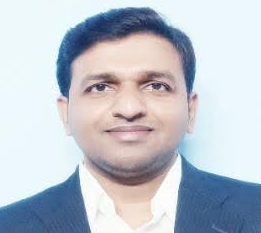Real World Evidence – Is India ready?
October 12, 2022 | Wednesday | Views | By Ravi Shet
Our country needs to continue to be well-organized about collecting all the right data all the time
In today’s era of pharmaceutical industry, especially in drug discovery and clinical research domain we often hear Real-world data (RWD) and Real-world evidence (RWE). Let’s explore to understand what is RWE and its impact on drug discovery as well as where India stands on usage of RWE.
RWE is the clinical evidence about the usage and potential benefits or risks of a medical product derived from the analysis of RWD. RWE holds abundant potential to improve patient outcomes since they help derive deeper insights from real practice beyond what the traditional clinical trials can produce. They can reduce drug development costs by serving as an external control arm, reducing or removing the need for control arms within the controlled clinical trial itself. COVID-19 pushed the industry to leverage RWE to innovate faster than ever. Companies developing vaccines used RWE to optimize site selection and collect data from diverse population. It also played an important role in understanding effectiveness of vaccine across demographics such as gender, age, race and ethnicity.
India Perspective on RWE
Our country with such large diverse population and healthcare systems provides ample opportunity for conducting studies in RWE; however, this potential is not yet understood because of lack of demand from regulators, payers and patients and low level of interest from clinical investigators. Below are some hurdles for use of RWE and leveraging these insights to their full capacity:
Data Quality: RWE is considerably dependent on the quality of available data. In our country, there is a lack of robust data collection methods and structured databases. One of the key critical issue is the high doctor-to-patient ratio, where doctors are loaded with a large number of patients to diagnose on daily basis. As a result, doctors are unable to devote adequate time for completing information related to medical records.
Lack of Medical Compliance: Patients tend to consult more than a single doctor in the search for second opinions resulting in lack of continued medical surveillance. As of now, there is no way to define if the data provided by these hospitals are of the same patient or multiple patients. Due to this reason, it is often challenging for healthcare professionals and administration to maintain a thorough, consistent record of the patients’ journey. It also leads to the duplicity of records adding to the burden of inconsistent medical records.
Electronic Medical Records Availability: Electronic Medical Records (EMRs) have been implemented only by a handful of private or corporate healthcare providers; however, the usage has not been to its full potential.
Insurance and Claims Data: Unfortunately, medical claims in India are ineffectively used to understand healthcare research and outcomes. As per the reports, nearly 30% of Indian adults don’t have health insurance coverage. Our medical insurance claims covers data only related to hospitalizations, surgeries or serious adverse events, leaving out outpatient visits or day consultations which adds to the burden of scattered data, thereby reducing the possibility of achieving widespread results when looking at real-world data.
Despite the above hurdles mentioned, our county is at a budding stage and there is a long way to go to be able to successfully leverage RWE. At the same time, there are an increasingly larger number of efforts to leverage RWE to its full potential which are mentioned below:
Patient Registries: Patient registries are of immense value in epidemiology and research and can support us in collecting information on individuals with a particular disease and document patient experiences. They are also critical tools for generating RWE itself and using RWE to support post-market surveillance and research. National Cancer Registry is one of the ideal example and an initial point to harness RWD.
Digital Healthcare: Digital initiatives like National Digital Health Mission launched by Prime Minister Narendra Modi on 15 August 2020 aims to create an integrated healthcare system linking practitioners with patients digitally by giving them access to real-time health records. This will enable healthcare providers to complete understand patient’s journey and provide quality care for all.
To conclude, our country needs to continue to be well-organized about collecting all the right data all the time, regulating our data collection instruments. Interactions between Government and industry players have to increase and they need to be taken into confidence by Government while taking or implementing key policy decisions. We have all the ingredients to be the next bright spot in the global economy as well as position ourselves into leading position and excel in terms of delivering quality and innovative products to the country and globally through proper use of RWE.
Ravi Shet, Clinical Data Management Professional with around 14 years of experience









